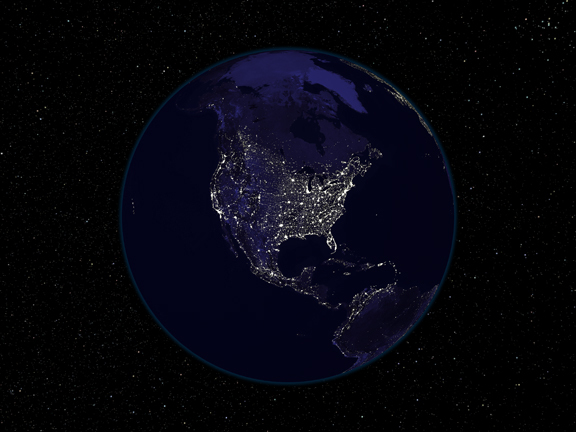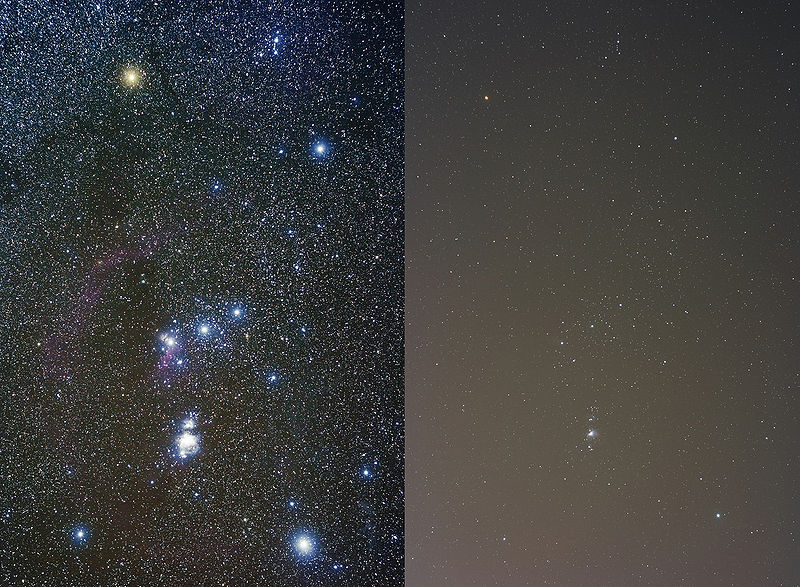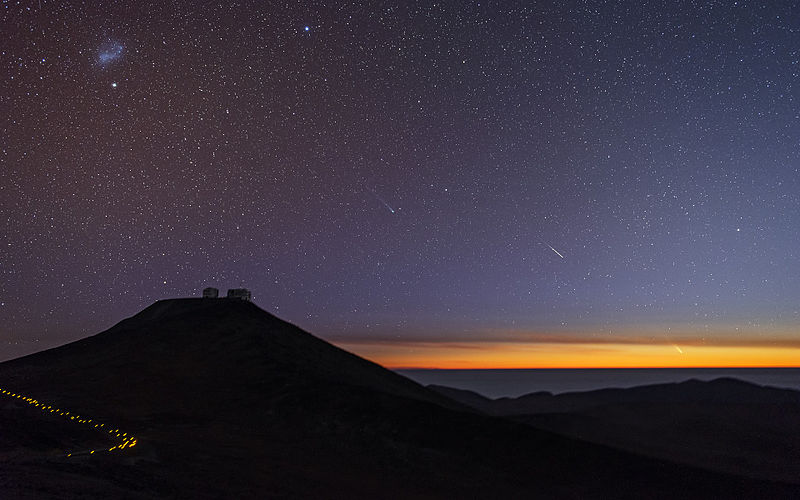Co-authored by Megan Watzke, co-author of Your Ticket to the Universe: A Guide to Exploring the Cosmos from Smithsonian Books

Planet Earth's bright city lights. Credit: NASA GSFC
The stars are disappearing. At least, that's how it appears for most people who live in urban and increasingly even suburban and more rural settings. This is a result of what is known as light pollution, where lighting is excessively (and wastefully) directed upward to the skies as opposed to just down to the ground where it can do the most good.
Light pollution is rampant, yet few of us notice it. Billboards that are illuminated up from the ground, car dealership signs that glow in all directions, and street lamps that leak light into our shared sky are so ubiquitous that they're practically part of the American landscape.
Good lighting on the ground can improve safety and security as well as promote businesses and other sectors of economy. Poorly designed lighting that squanders energy does us no favors. It's the equivalent of shooting dollars into the sky.
There is, however, more than just dollars lost when light pollution takes over an area. We lose our connection to the night sky. Previous generations enjoyed looking at stars, finding planets, and seeing our own fantastic Milky Way galaxy. They navigated by the stars, planned community events and harvests around the phases of the moon, and created shared legends and stories around their constellations.

Seeing the Orion constellation from dark skies (left) and from urban skies (right). Credit: Jeremy Stanley
Without these experiences, it's easy to forget that we are part of a greater universe. Washing away the wonders of our universe through light pollution is akin to barring access to our forests and oceans and canyons. It leaves us with fewer avenues to explore the natural world as it exists beyond our planet. It makes it harder for us to look up and ask those big questions: What is out there and are we alone?
The sky belongs to everyone. Whether you live in Boston or Budapest or Bombay, every child and adult should be able to explore the universe he or she lives in. When we find ourselves under the majestic tapestry of a starry sky, we can forget some of the material things that consume us here on Earth, even if for just a moment. Perhaps we might realize that the problems that divide us are dwarfed in comparison to the grandeur of our solar system, our galaxy, and beyond.

Comets and stars from dark skies. Credit: G. Brammer/ESO. See also, a map of Earth's lights at night
The night sky is a free science lesson that's held every 24 hours in all communities no matter to what socio-economic situation they find themselves in. It doesn't require any previous experience or education -- just the ability and desire to look up. That is, unless we blot it out with inefficient, wasteful lighting. If we preserve our night skies today, the stars will be there tomorrow to inspire. It's hard to think of a more cost-effective investment that we can make for ourselves.
Kimberly Arcand and Megan Watzke are co-authors of Your Ticket to the Universe: A Guide to Exploring the Cosmos," published by Smithsonian Books in 2013
